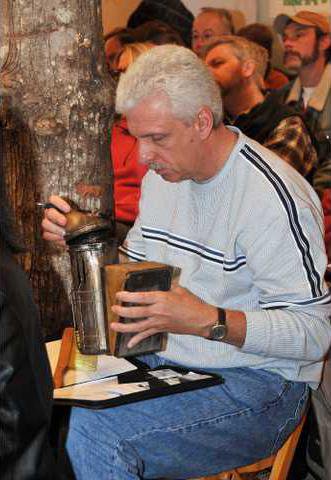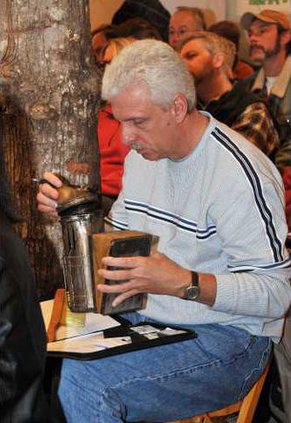Bees come in different shapes and sizes. They also come in honey and bumble.
Bees also sting and buzz, and many people are afraid of them.
But despite that fear, prospective beekeepers met for a beginner’s beekeeping class Saturday at the Smithgall Woods Conservation Center in Helen.
John Erbele, general manager of the center, said there is a lot of interest in buying local honey, which some say is good for allergies.
Class instructor Berry Wright, who has been keeping bees for 48 years, has been teaching beekeeping sessions for four to five years.
Wright has several hundreds of bees, and says he probably has been stung more than 10,000 times. He admits you have to love the job to do it.
“I have two boys and neither one of them are interested,” Wright said. “The younger one went with me a couple of times, and he got to a point where he didn’t want to be anywhere near them because he didn’t want to get stung.”
Erbele said Wright is great with sharing his knowledge about beekeeping.
“We have had a lot of interest from adults so this program was organized based on some demand,” Erbele said.
“I heard that one third of everything we eat is because of bees and bee production. Of course, children associate bees with stinging, and it is important that they realize that a bee is not just a stinging creature. It has a lot of other functions in our ecosystem.”
Erbele said honey is the one food known to man that will not spoil.
“They found honey in the pyramids and other buried locations,” Erbele said. “It lasts forever, it is a natural sweetener, and it is good for you compared to some processed sugars.”
Wright said to be a beekeeper, you have to love the work and the bees and learn to take the stings as part of your job.
For people who are either keeping a couple of colonies for their garden or producing honey for family and friends, Wright recommends to not just buy the equipment for one colony but to actually start out with two colonies because a certain percentage of them are nonproducers.
During the program, Wright talked about different tools for beekeeping, such as the “smoker,” which helps calm bees down. There is also a “bee brush” used to sweep bees off a frame.
More than 30 participants gathered to listen and learn, including Bill Aliucci of Murrayville.
“It is a hobby I have always thought about and read about,” Aliucci said. “I needed more knowledge because when you are dealing with bees you better know more than you think you do.”
Aliucci admits he has been afraid of bees because they can sting in groups.
“I’ve been in yellow jacket nests that can chase you toward the river a little bit,” he said.
Aliucci said bees are having a hard time due to diseases, human population and chemicals in the environment.
“Not only can you do yourself some good with this hobby, but you can do the environment some good,” Aliucci said.

